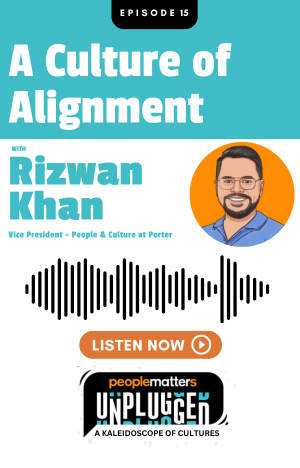Better people management means more profits for investors, says Schroders

Human capital encompasses the skills, experiences, and relationships of a company's workforce, all of which contribute to its ability to generate economic value. Global asset manager Schroders has unveiled a unique method for analysing investments related to human capital management. This approach assesses the systems implemented by companies to enhance their workforce's performance.
Developed with academic support from the Oxford Rethinking Performance Initiative at Saïd Business School, University of Oxford, and in collaboration with California Public Employees’ Retirement System (CalPERS), the analysis establishes that human capital significantly influences a company's productivity and profitability.
Furthermore, companies with robust management structures tend to generate stronger returns and create greater value for investors said the study.
To effectively manage human capital, organisations can implement a combination of strategies, including operating models, workforce strategies, fostering a positive culture of inclusion, implementing incentive and performance management systems, nurturing talent and learning initiatives, and encouraging innovation. These combined efforts help optimise the potential of the organisation's workforce and lead to better economic outcomes.
“As the corporate landscape evolves in a more volatile market, a company's workforce is integral to its performance. However, the market has lacked distinct, quantitative ways to analyse these factors as tangible assets. This research allows us to identify companies that are leaders and laggards in human capital management to make informed allocation and engagement decisions,” said Marina Severinovsky, Head of Sustainability, North America at Schroders.
Key discoveries and insights from the analysis:
- We can define and measure what the outcomes of good human capital management look like, and why we see structural and cyclical reasons to focus on this currently.
- Human capital returns are positively correlated with forward excess returns (those exceeding a relevant benchmark or index) over multiple time horizons and across a majority of sectors, even after controlling for Return on Capital Employed and adjusting for a variety of factors.
- There are multiple paths to human capital management affecting balance sheets and profit and loss.
- This being said, there is risk associated with focusing too much on an objective measure for human capital. Human capital analysis must combine qualitative and quantitative assessment. With KPIs to identify good human capital management, we can consider the drivers of change, and show how to optimize human capital productivity.
“This research tells us that investors should not ignore human capital management in evaluating investee companies,” said Angus Bauer, Head of Sustainable Research. “As we approach continued economic volatility, our research shows that companies with strong human capital management are likely to be more capable of navigating the future effectively. Even as the integration of artificial intelligence across industries evolves, the relevance of people as the stewards of value creation will remain high.”














